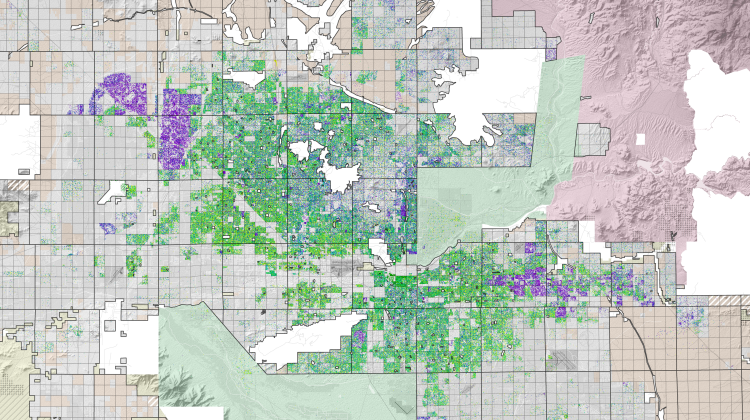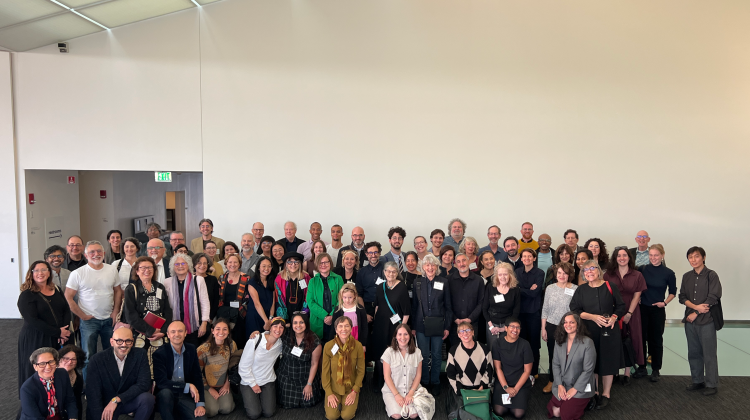Special Subject: Study in Modern Architecture — Eurocentrism and Beyond — The World; The Globe; The Planet
Beginning in the 1980s, the critique of Eurocentrism opened up an increasingly large domain for historical analysis and reassessment in both architectural and art history. We will try to make sense of this shift and its embodied critiques as well as their on-going transformations, potentials, and problematics. Since secondary literature and analysis of this phenomenon is practically non-existent, we will study the phenomenon by trying to assemble different takes and perspectives.
Note for MArch students: Serves as a HTC Non-Restricted OR Restricted Elective
Design: The History of Making Things
Examines themes in the history of design, with emphasis on Euro-American theory and practice in their global contexts. Addresses the historical design of communications, objects, and environments as meaningful processes of decision-making, adaptation, and innovation. Critically assesses the dynamic interaction of design with politics, economics, technology, and culture in the past and at present.
Culture and Architecture: Urbicide: Destruction, The City, and Memory
The destruction of cities has historically functioned as an act of punishment, retribution, the projection of absolute power, or the fulfillment of an oath, a dream, or a divinely sanctioned intervention. In modern times, additional factors entered this causative inventory, linked to the enormous advances in the technologies and strategies of destruction and reconstruction, the modernist philosophical and legal reframing of the individual and the collective, and the rise of economics to the top of the modern state’s metrics of self-evaluation and international standing. Throughout history, the destruction of cities has been, first and foremost, an architectural and urban gesture of no less significance than the construction of cities themselves—a condition that gave rise to the critical term urbicide, coined in response to the destructive streak embedded in the grand American urban vision of the 1960s. These developments have had profound effects not only on architecture and urbanism, but—perhaps even more importantly—on urban identity and memory, on the mapping and definition of territories and states, on the conceptualization of ethics, and on the complex relationship between the city and the world’s political and religious systems.
This seminar examines the history of urbicide as it unfolds across time and space, from the divinely sanctioned destruction of Sodom and Gomorrah, to the ancient obliteration of Babylon, Troy, Carthage, and Jerusalem, to the medieval devastation of Nishapur, Baghdad, Teotihuacan, and Cusco, moving onward to the ravages of the two World Wars and the wars of decolonization, and concluding with the destruction of Middle Eastern cities in the present. Through close analysis of paradigmatic cases, the seminar reframes urbicide as a privileged site where power, violence, and representation converge. Rather than treating the destruction of cities as a purely military, political, or technical phenomenon, the course interrogates how urbicide has been narrated, visualized, justified, aestheticized, and erased across imperial, colonial, and postcolonial contexts. In doing so, it positions the city as one of the most intricate artifacts human society has produced and organized itself around. Alongside urbicide, the seminar critically engages key concepts such as the city, ruins, violence, destruction, memory, and urbanism understood as a historically contingent sociospatial process.
Note for MArch students: Serves as an Urbanism elective
Selected Topics in Architecture — 1750 to the Present
General study of modern architecture as a response to important technological, cultural, environmental, aesthetic, and theoretical challenges after the European Enlightenment. Focus on the theoretical, historiographic, and design approaches to architectural problems encountered in the age of industrial and post-industrial expansion across the globe, with specific attention to the dominance of European modernism in setting the agenda for the discourse of a global modernity at large. Explores modern architectural history through thematic exposition rather than as simple chronological succession of ideas.
Modern Art and Mass Culture
Our primary inquiry will be on the diversification of the aesthetic, cultural and political fields in the twentieth century through the intersection of “high” art forms (e.g. painting, sculpture) with widely disseminated forms of mass culture (e.g. movies, advertisements, posters, mass-produced and circulated commodities, and ‘folk’ culture). Students will be introduced to some of the most controversial and influential themes in modernism, including Cubism, Dada, Surrealism, Constructivism, Social Realism, and various forms of abstraction. We will also look at Pop, Minimalism, Conceptualism, as well as Earth Art. Along the way, we will analyze terms such as “avant-garde,” “aesthetic autonomy,” the “culture industry,” “mass culture” and “kitsch.” Just what “mass culture,” and related concepts such as “the masses” and the “culture industry” are will be a special focus. Questions of identity and difference will also come to the fore as we look at visual production as it intertwines with issues of gender, race, and class. Further issues will be the transformation of the role of the artist, expanded definitions of art, institutional critique, and art’s utopian aspirations.
Rather than following the traditional and, by now, untenable model that limits review of modern art to Europe and the United States, we will examine the period within a more global framework, bringing in material from Africa, Asia, and Latin America. One of the principal arguments of this course will therefore be that it is impossible to understand modern art without considering it from a global perspective. We will examine, for instance, how Surrealism’s encounter with Africa and the African diaspora opened a decolonial perspective on Western modernism. We will also look at the transformative utopian aspirations of Geometric Abstraction as it crossed from Europe to South America. And so on.
Additional work required of students taking graduate version.
Special Subject: History, Theory & Criticism of Architecture & Art: Aesthetics of Environmental and Political Justice in the Americas
This seminar examines the vital role of aesthetic practices in animating struggles for justice. Drawing primarily on examples from Latin America the course analyzes how forms of aesthetic engagement respond to and shape an ethics of human rights, political justice, and environmental stewardship in the face of the ongoing effects of colonial violence, Cold War and geopolitical brutality, and climate catastrophes. The moral implications of such artistic engagements, along with the theoretical, methodological, and legal models explored, will also be applicable to other regional contexts.
Note for MArch students: Serves as a HTC Non-Restricted OR Restricted Elective
Environmental Histories of Architecture
4.606 Undergraduate | 4.656 Graduate
Drawing on case studies from the ancient world to the present day, considers how the creation of architecture has involved the modification of natural environments and climates and the exploitation of resources across the globe. Investigates the metabolic processes of raw material extraction, transportation, and manipulation that make the creation of buildings, infrastructures, and designed landscapes possible. Explores how material and climatic considerations have played into the design and aesthetics of buildings at various points in time and promotes an awareness of the largely invisible, increasingly far-flung networks of environmental management and labor that underpin our built environment. Students taking graduate version complete additional assignments. Limited to 25 for versions meeting together; preference to undergraduates.
Design: The History of Making Things
Examines themes in the history of design, with emphasis on Euro-American theory and practice in their global contexts. Addresses the historical design of communications, objects, and environments as meaningful processes of decision-making, adaptation, and innovation. Critically assesses the dynamic interaction of design with politics, economics, technology, and culture in the past and at present.




